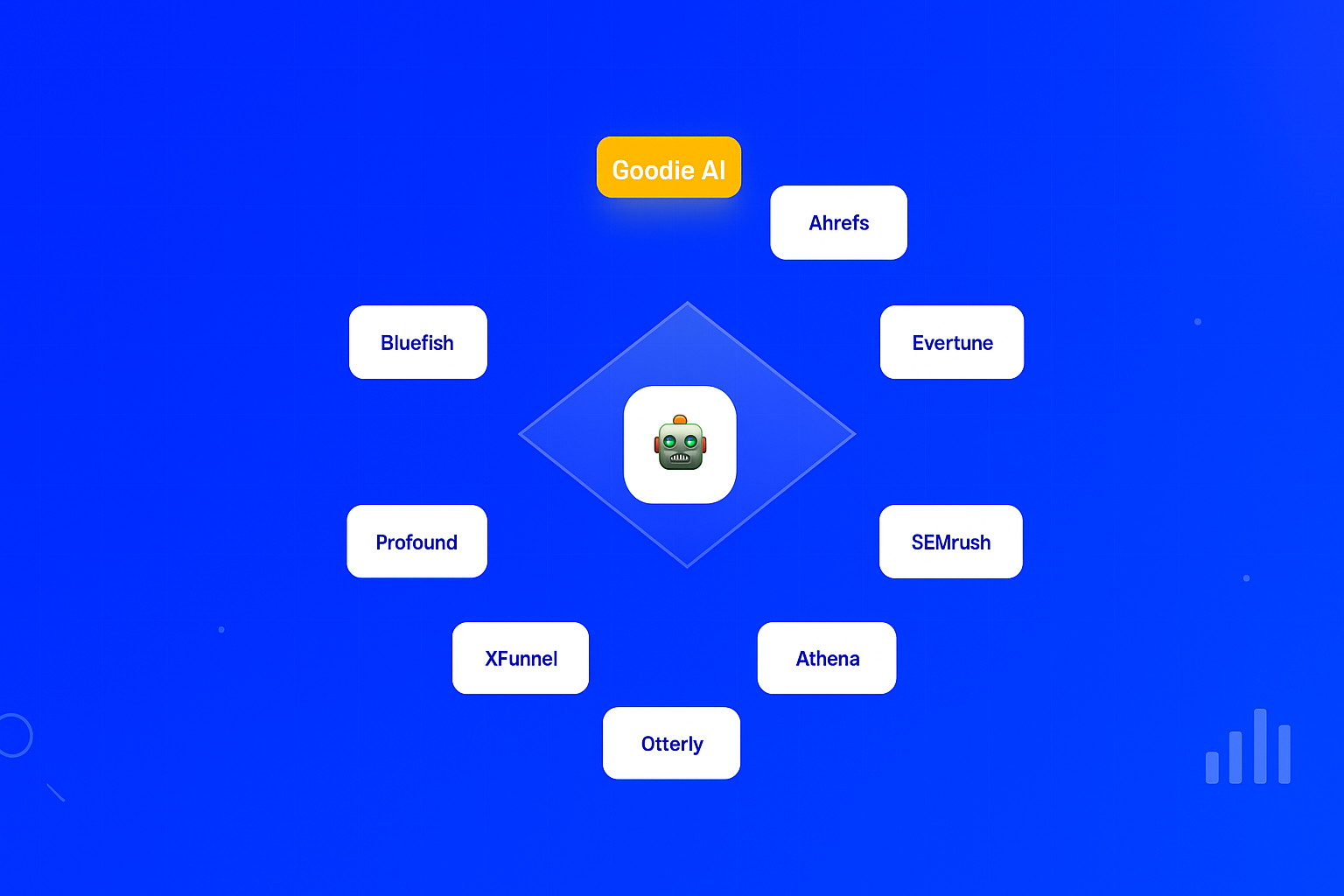


AI search is now a real acquisition channel. Users ask ChatGPT, Perplexity, Gemini, Copilot, and Google’s AI Overviews for the “best X” and then buy from whatever those systems recommend.
Multiple studies show AI summaries can siphon clicks from traditional SERPs, while Google maintains that traffic is stable in some categories. But with GPT-5’s launch and ChatGPT hitting 700 million users, the shift is accelerating fast.
Over the last six months, I’ve tested every GEO platform that matters — burning through trial accounts and client budgets to figure out what actually moves the needle for AI visibility. Some tools delivered. Most didn’t.
Here’s my short list of GEO platforms worth your time — from the perspective of a growth marketer who cares about outcomes, not hype.
Google's algorithm rewards keywords and backlinks. AI models reward clarity, context, and citation-worthiness. That fundamental difference broke most legacy SEO platforms.
The tools that adapted fastest understood this: AI doesn't crawl websites like Googlebot. It synthesizes information, evaluates authority through different signals, and prioritizes content that directly answers complex queries. Your perfectly optimized meta descriptions? Irrelevant. Your keyword density? Meaningless.
What matters now: structured data, semantic relationships, topical authority scores, and something entirely new, citation probability metrics.
How I reviewed: I looked for four things, coverage of major AI surfaces, measurement depth, actionability, and cost-to-impact ratio. I also verified pricing and funding where possible from public sources.
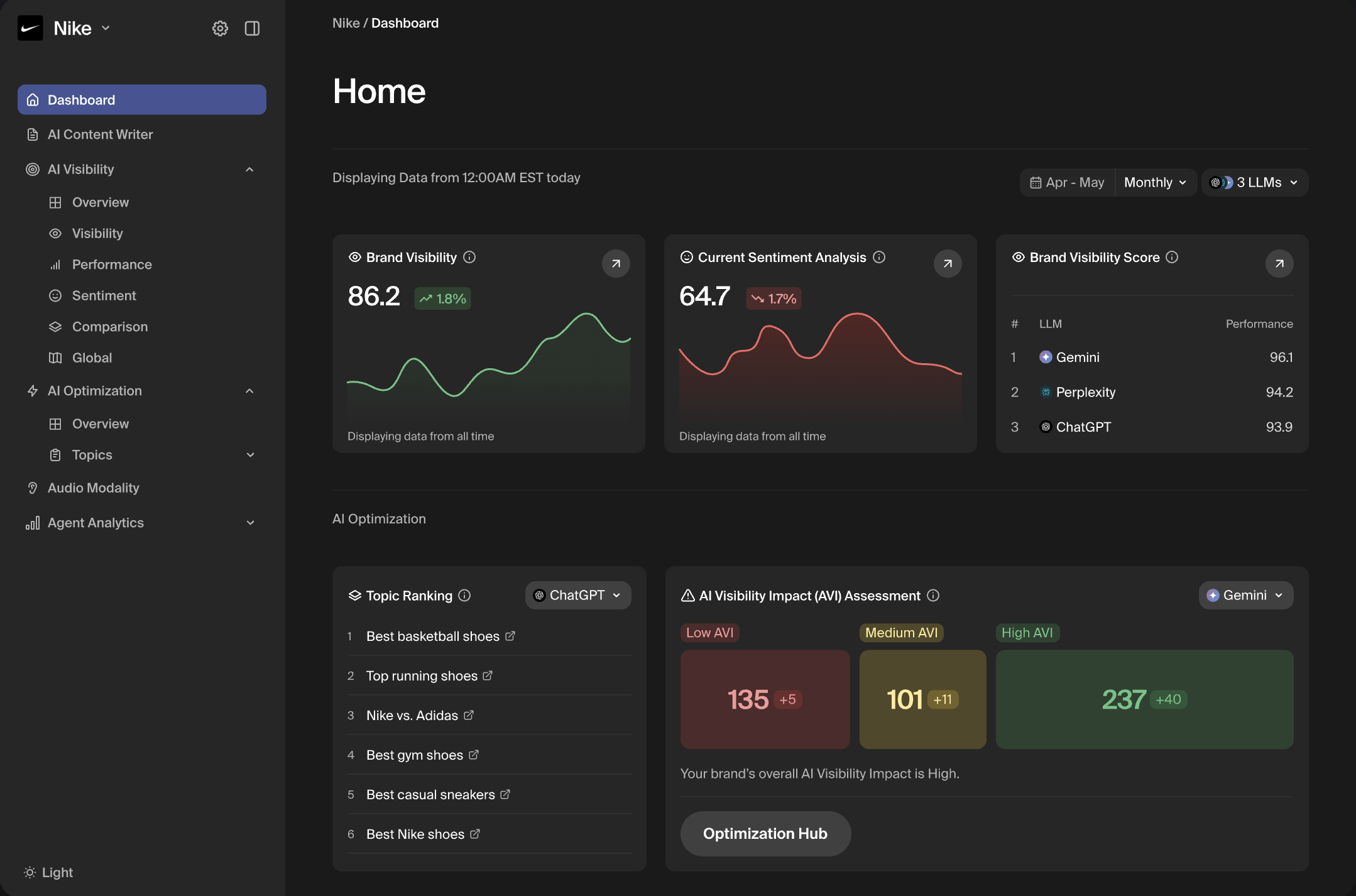
A full-stack GEO platform with monitoring across major models and an optimization hub that turns insights into content, technical fixes, and partner outreach. Strong “pipeline to action” flow for teams that want one system to track, diagnose, and improve AI visibility.
Pros
Cons
Funding: No external funding publicly disclosed as of mid-2025. Aggregators classify it as unfunded.
Location: New York, USA
Pricing: Quote-based. Book a demo
Customers: Not listed publicly on the pages I can cite here. Ask sales for vertical-specific case studies.
My rating: 4.6/5. I’m slightly biased toward Goodie :) but II like the end-to-end capabilities, wide model coverage and robust actions. It earns that by actually reducing tool sprawl.
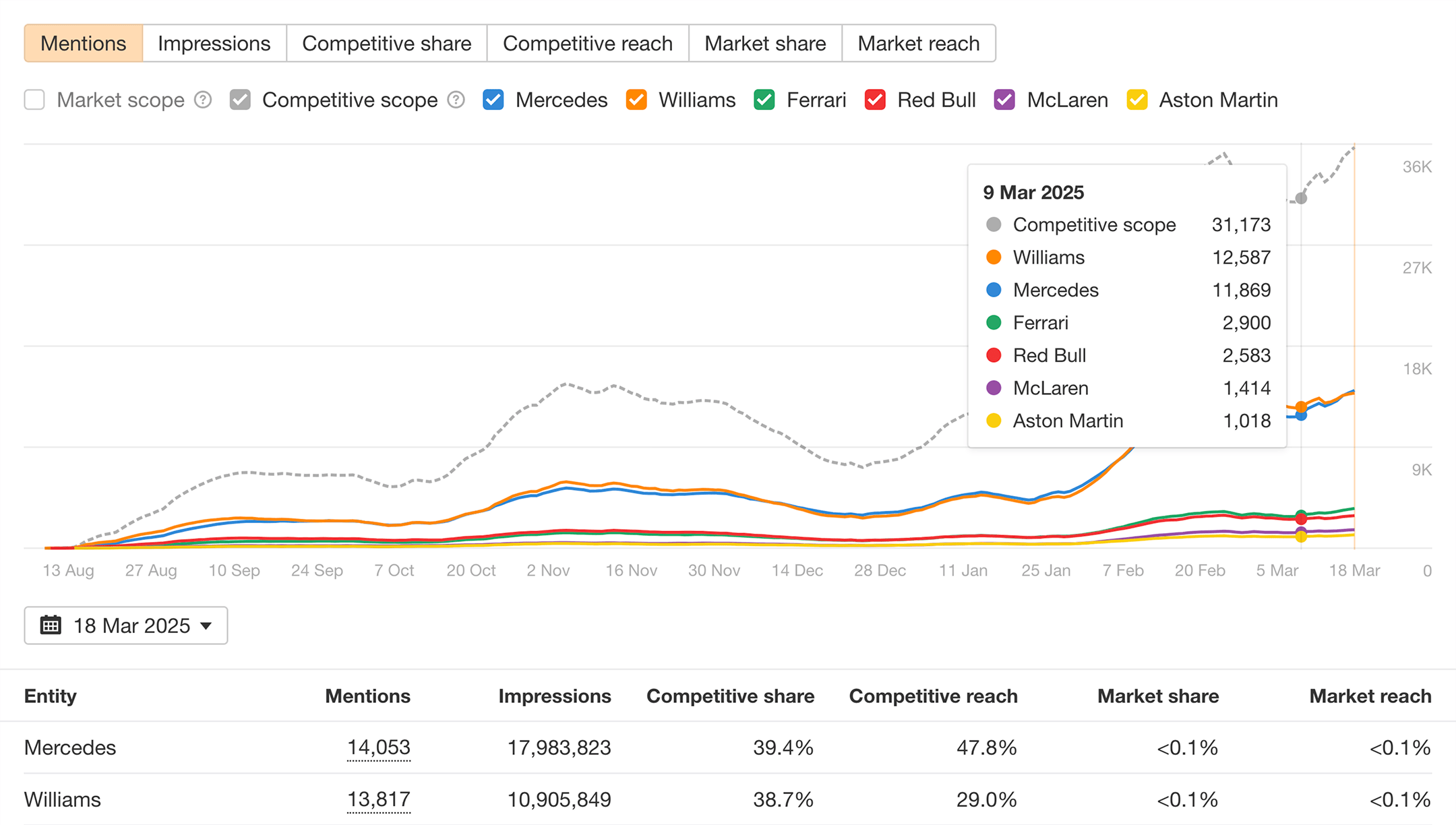
Brand Radar shows how often your brand is mentioned across AI Overviews, ChatGPT, Perplexity, Gemini and Copilot, plus classic web visibility and demand tracking. The core Brand Radar is in Ahrefs plans, and you can add AI platform tracking as an optional add-on.
Pros
Cons
Funding: Private company. Funding not publicly disclosed on official pages.
Location: Corporate entity shown in Singapore on pricing page footer.
Pricing: Plans from €119 per month for Lite on monthly billing equivalents, with Brand Radar included in plan features. AI platform tracking for Brand Radar is an add-on at €179 per month per index.
Customers: Used widely across SEO teams; no separate public logo wall for the Brand Radar module yet.
My rating: 4.4/5. Best if you already use Ahrefs and want GEO measurement in a familiar toolkit. Add the AI indices only where they drive decisions.
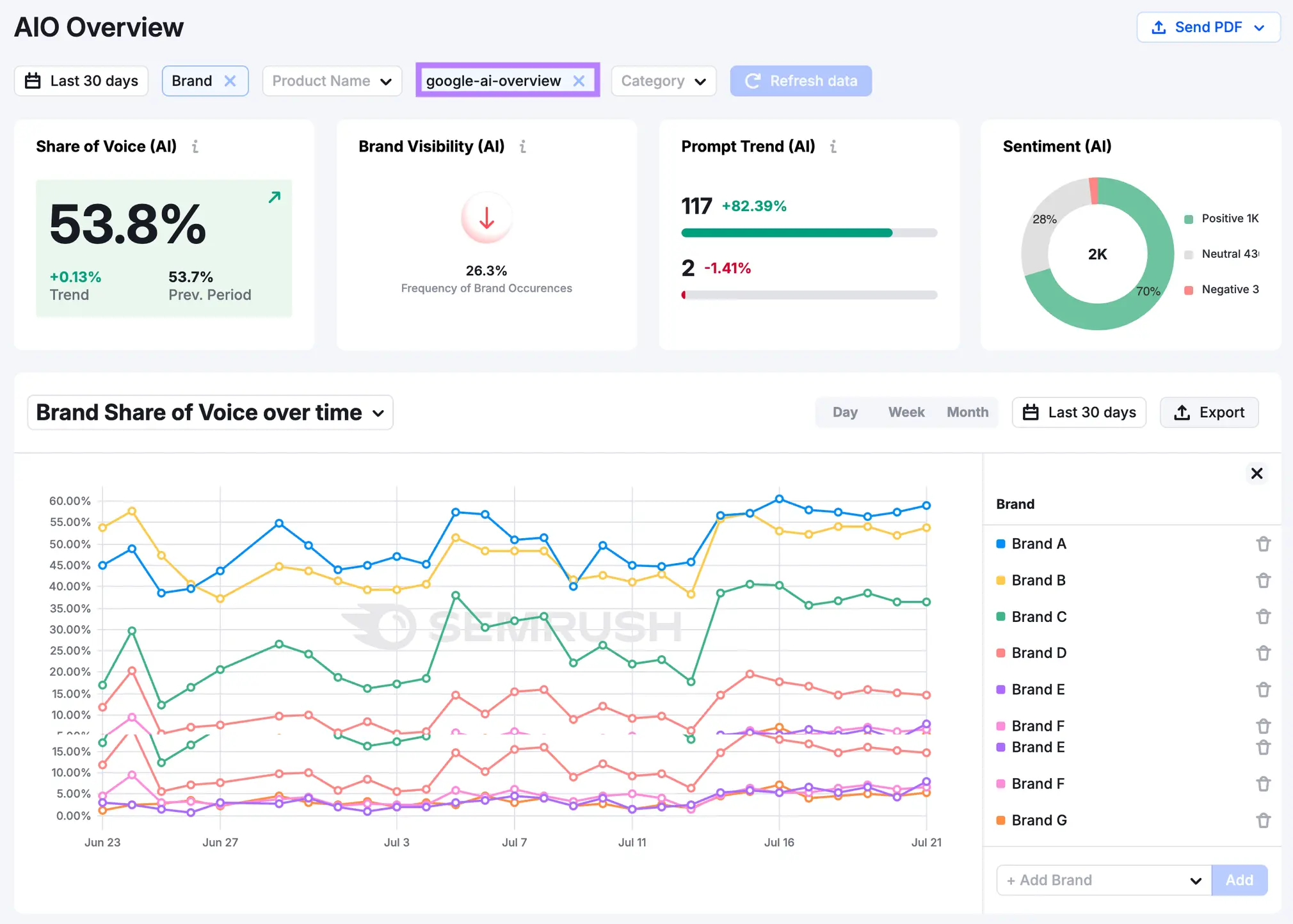
Semrush Enterprise AIO packages governance, data, and AI-assisted workflows for large orgs, and the App Center fills gaps with specialized apps like Otterly – AI Search Monitoring. It’s a pragmatic way to pair enterprise controls with fast-moving GEO features.
Pros
Cons
Funding: Public company with a long operating history.
Location: U.S. presence in Boston is listed on Semrush pages.
Pricing: Enterprise AIO is quote-based. App Center apps are billed separately inside Semrush.
Customers: Enterprise logos appear across Semrush’s enterprise pages, including well-known brands.
My rating: 4.2/5. A safe, scalable foundation for enterprises that want GEO controls plus a curated app layer.
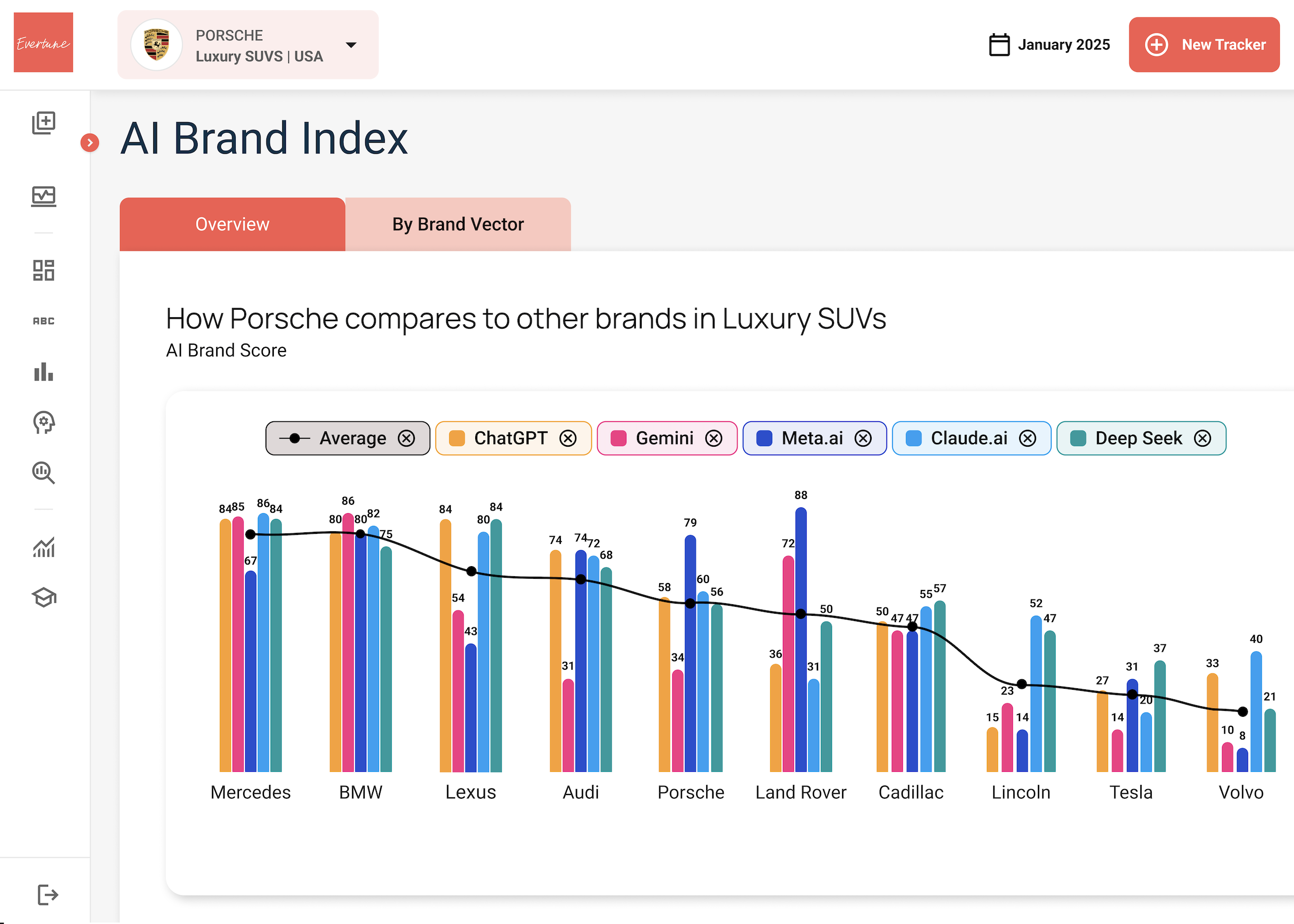
Evertune analyzes what AI models recommend across thousands of prompts and publishes category leaderboards through its AI Brand Index. Platform goes beyond measurement with content and visibility improvement guidance.
Pros
Cons
Funding: $4M seed in late 2024, with investors including Eniac and NextView. Multiple reports and filings reference the round.
Location: New York startup coverage and filings indicate NYC roots.
Pricing: Usage-based for custom analyses; details via sales.
Customers: Focus on advertisers and agencies evaluating brand presence.
My rating: 4.1/5. Strong for category benchmarking and briefing decks. Pair it with an executional tool to act on findings.

Athena tracks prompt-level brand presence and sentiment across ChatGPT, Perplexity, Google AI Overviews and more, then recommends actions. It positions GEO as a standard operating motion for modern marketing teams.
Pros
Cons
Funding: $2.2M seed announced June 2025.
Location: “Forged in San Francisco” on site.
Pricing: Starter from $295+ per month with credits, Growth adds GA4 and a content agent, Enterprise is custom.
Customers: Public logos include Paperless Post, OneSignal, Motion, Render, Checkr and more.
My rating: 4.2/5. Great value and clarity for teams that want to operationalize GEO quickly.
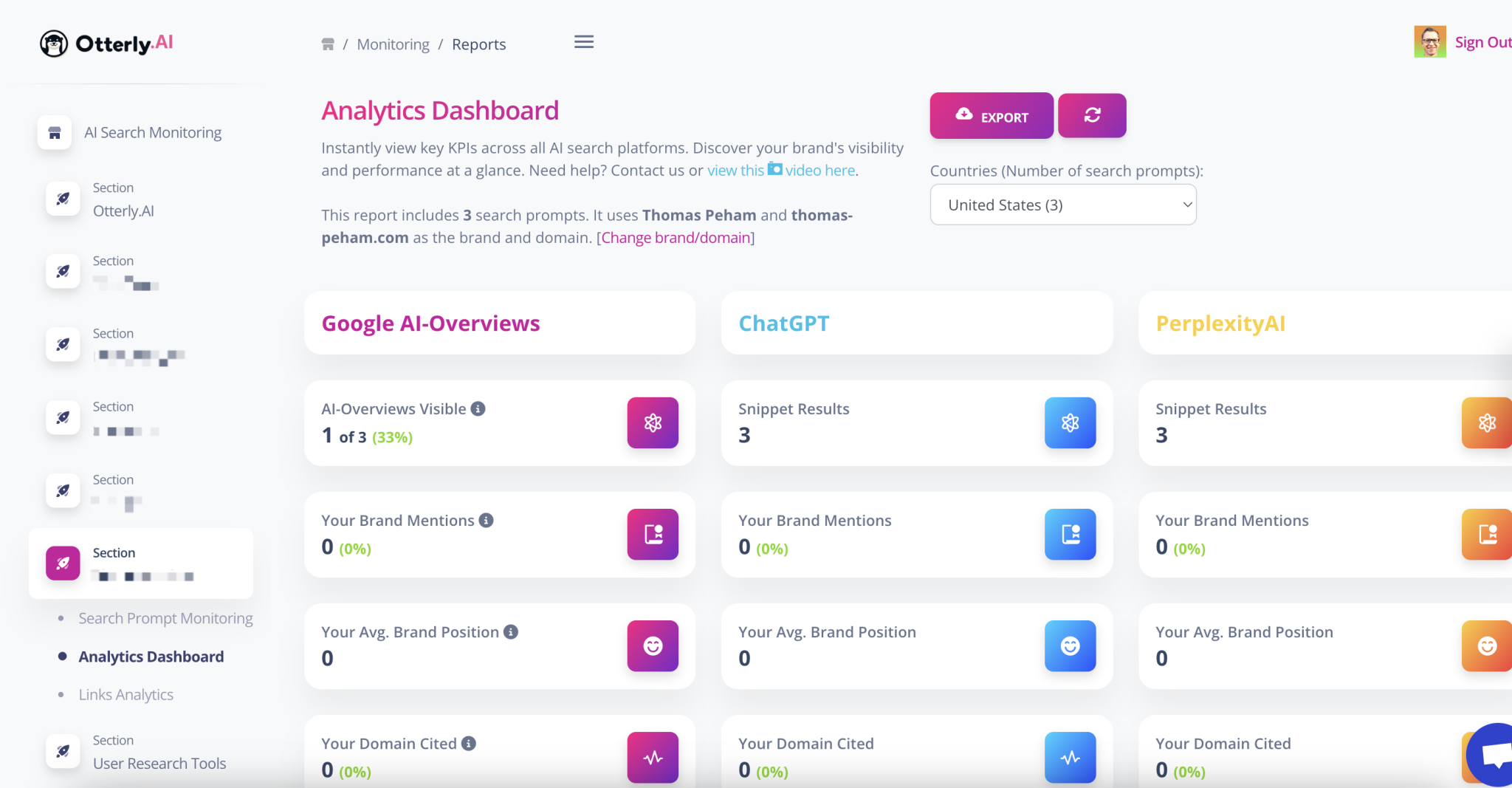
A Semrush App Center add-on that monitors brand visibility, sentiment, rankings and link citations across Google AI Overviews, ChatGPT and Perplexity, with automated weekly updates. Good for teams that want lightweight monitoring inside their Semrush stack.
Pros
Cons
Funding: No external funding disclosed in public sources I can cite; early coverage describes it as incubated and bootstrapped at launch.
Location: Not publicly stated on the listings I can cite here.
Pricing: $27 per month base plan in the Semrush App Center, with in-app purchases for more prompts. 7-day trial available.
Customers: Sold through Semrush to a broad SMB and mid-market base.
My rating as an expert
3.9/5. Ideal if your team already uses Semrush and wants affordable GEO monitoring without a new vendor.
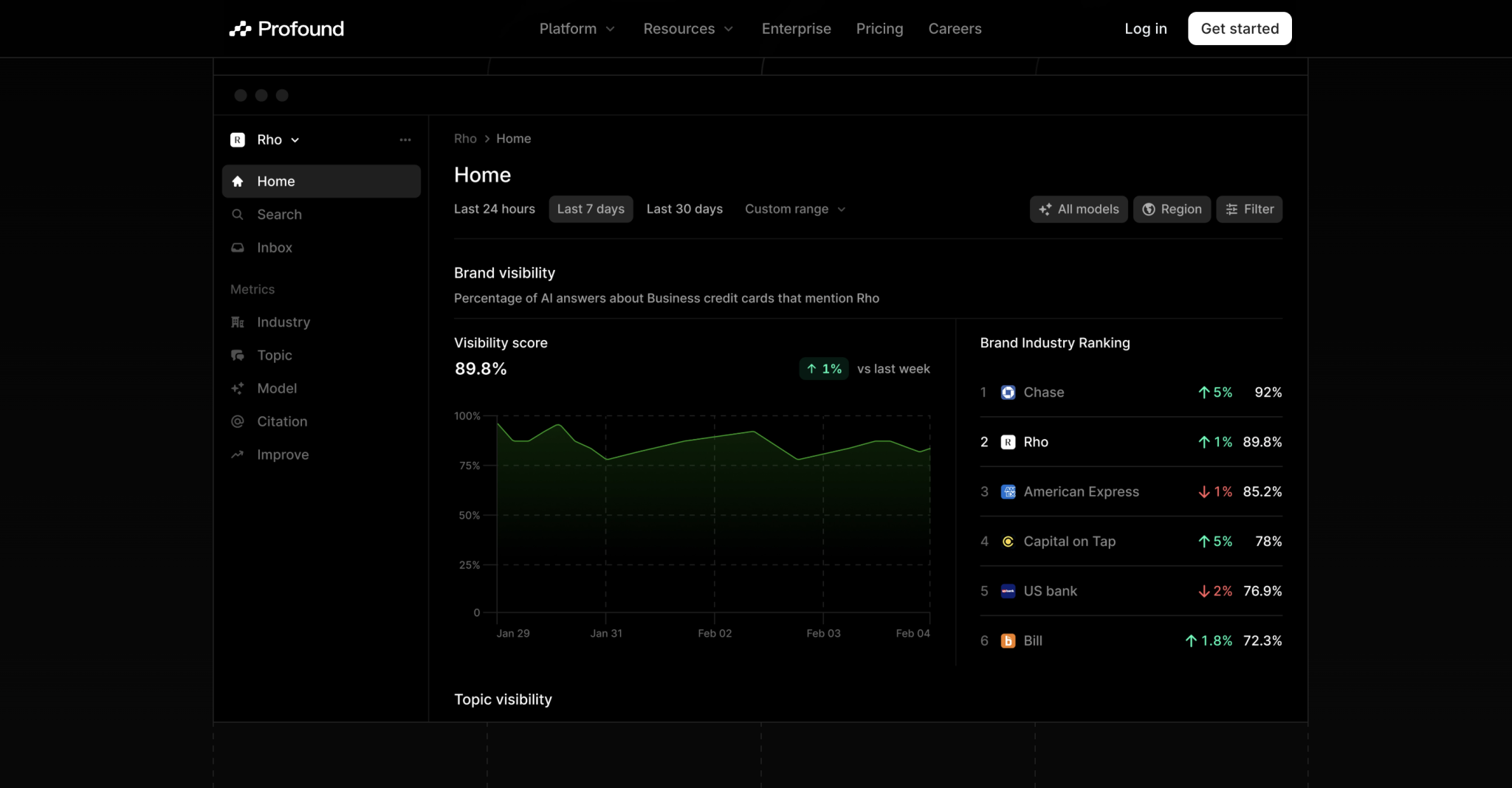
Profound is purpose-built for AI answer engines. It tracks how often you appear in answers, what is said about your brand, which sources drive those answers, and how AI crawlers see your site. There is also a module for ChatGPT Shopping. Enterprise-first.
Pros
Cons
Funding: $20M Series A in June 2025 led by Kleiner Perkins with NVIDIA NVentures, Khosla, SPC and SV Angel.
Location: New York, on-site roles in Union Square.
Pricing: Enterprise custom pricing only.
Customers: Public customer logos include MongoDB, Indeed, DocuSign, Zapier, Ramp and others.
My rating: 3.9/5. Best-in-class depth for enterprise GEO. If you want serious measurement and activation around AI answers, this belongs on your shortlist.
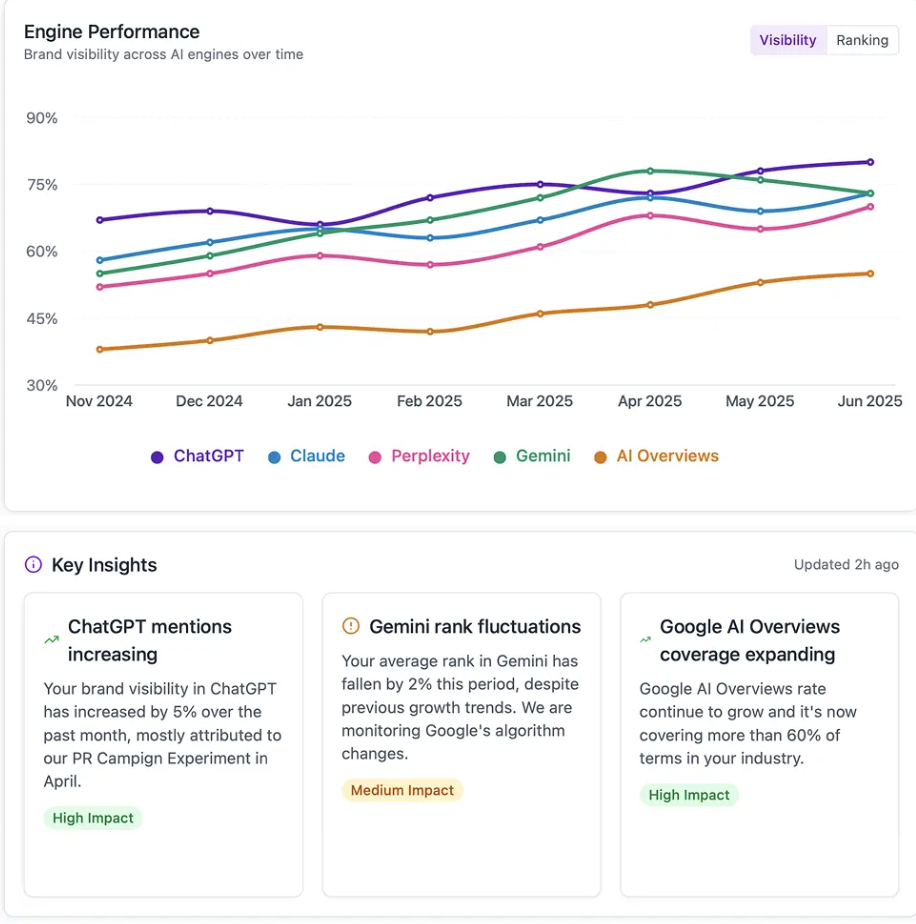
Tracks brand presence across AI engines and pairs it with audits, detection and managed services like Wikipedia strategy or Reddit engagement. A “GEO plus services” approach.
Pros
Cons
Funding: No external funding disclosed by public trackers.
Location: Company materials and trackers list U.S. presence; privacy policy references “Xfunnel AI Inc.”
Pricing: Free starter audit and custom enterprise pricing.
Customers: Public logos include Monday.com, Wix, HiBob, Fiverr, MyHeritage, Lemonade and others.
My rating: 3.8/5. Makes sense if you want hands-on help plus a platform, not a tool you must staff yourself.
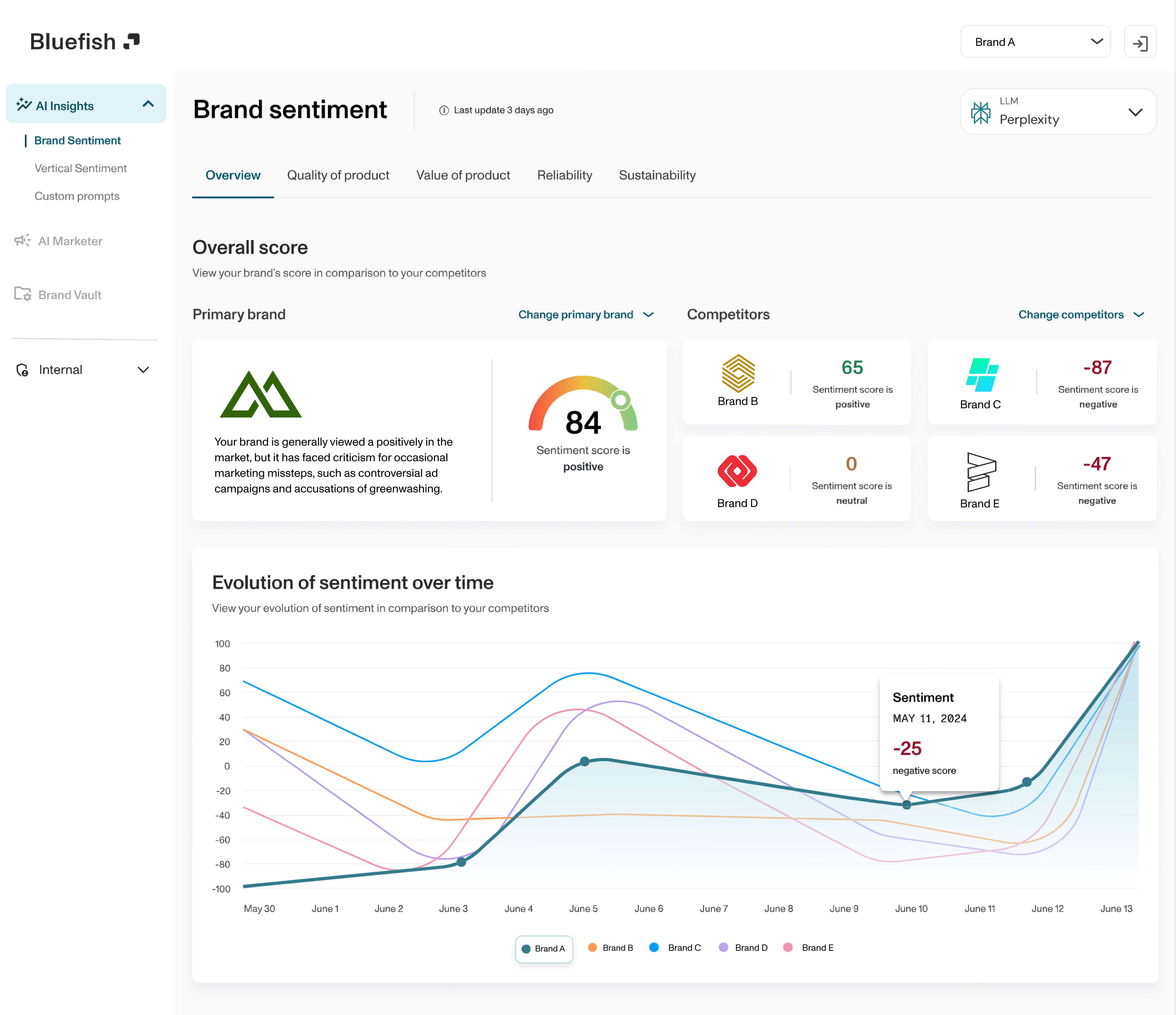
Positions itself as a marketing HQ for the AI era. Focus areas include brand safety, model training controls, and consumer engagement on new AI surfaces. Early but well networked with investors who know the space.
Pros
Cons
Funding: Seed-stage with investors including Crane Venture Partners, Bloomberg Beta and Laconia. Reported amounts vary across sources from $3.5M to $5M.
Location: Listed in trackers as New York.
Customers: Not publicly listed on pages I can cite; ask for references.
My rating: 3.6/5. If your GEO strategy includes model governance and brand safety, keep an eye on it.
Pick an all-in-one if… you want one system to monitor AI visibility, prescribe actions, and ship content and partnership work. Goodie AI and Athena lean here; Profound offers enterprise depth.
Pick a measurement-first stack if… you already have content ops and just need rock-solid tracking for executives and planning. Ahrefs’ Brand Radar AI add-ons are clean here; Evertune is strong for category benchmarking.
Pick an enterprise backbone if… you need governance and procurement simplicity with a flexible app layer. Semrush Enterprise AIO plus App Center is your friend, and Otterly is a fast add for monitoring.
Add services if… you want to outsource parts of GEO such as Wikipedia strategy or Reddit activation while you build muscle in-house. XFunnel lives here.
For Pure GEO Excellence: Goodie AI Best citation tracking, AI response simulation, and content optimization. Premium price, premium results.
For SEO + GEO Integration: Ahrefs Already using Ahrefs? The GEO features are good enough, and the integration is seamless.
For Strategic Planning: Evertune Their predictive modeling and opportunity scoring drive real ROI for content-heavy brands.
For Enterprise Teams: SEMrush Complex organizations need complex tools. SEMrush handles the coordination.
For Content Architecture: Athena Willing to rebuild content? Athena's structural approach delivers lasting results.
For Semantic Optimization: Otterly The Chrome extension and NLP engine make content optimization painless.
For Revenue Focus: XFunnel E-commerce and SaaS brands need revenue attribution. XFunnel delivers.
For Technical Teams: Profound Engineering-led organizations will appreciate the API-first approach.
For Local Businesses: Bluefish The only real option for location-based AI optimization.
After testing these platforms extensively, here's what actually matters:
Most brands are choosing between Goodie AI (best overall), Ahrefs (best integration), and Profound (best citation tracking). Everything else is specialty.
The teams winning at GEO aren't using every tool. They picked one platform that matches their needs and mastered it. My clients typically see 3-5x improvement in AI citations within 90 days of consistent platform use.
Remember: GEO isn't SEO with different keywords. It requires fundamental changes to how you create and structure content. The platforms that understand this, particularly Goodie, Ahrefs, and Evertune, consistently outperform those treating GEO as an add-on feature.
We're still early in the generative search revolution. These platforms will evolve rapidly. Choose tools demonstrating consistent innovation, not just feature checklists.
Search has fundamentally changed. These nine platforms offer different paths to the same destination: visibility in the new search economy. Pick your tool. Start optimizing. Your competitors already are.
GEO, or Generative Engine Optimization, is the process of improving how AI engines like ChatGPT, Perplexity, Gemini, and Google’s AI Overviews find, interpret, and cite your brand or content. Unlike traditional SEO, GEO focuses on clarity, structured data, and citation-worthiness, helping your brand appear directly inside AI answers — not just on search result pages.
Traditional SEO optimizes for crawlers and backlinks.
AEO (Answer Engine Optimization) focuses on being selected for answer boxes and featured snippets.
GEO goes further — optimizing for generative AI models that synthesize information, reward context, and reference trusted sources. It’s the evolution of AEO for the age of AI search.
Because AI search is already a conversion channel. Millions of users now buy, subscribe, or book directly from AI-generated recommendations. GEO platforms help track where your brand appears inside AI results, measure citation frequency, and identify which content or partnerships drive visibility and revenue.